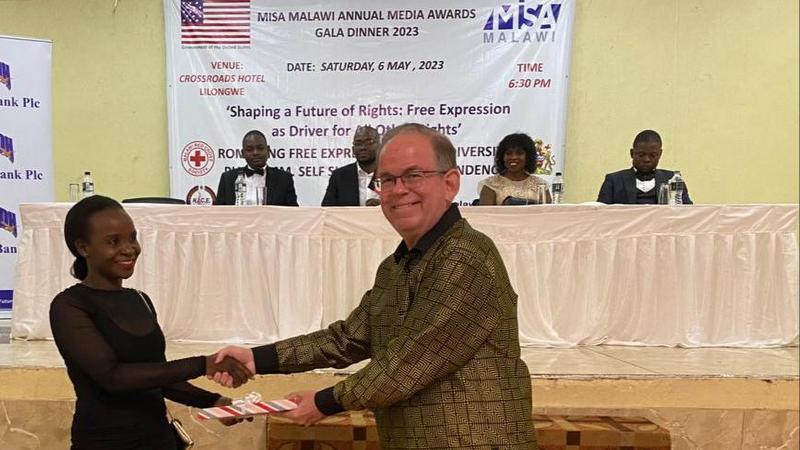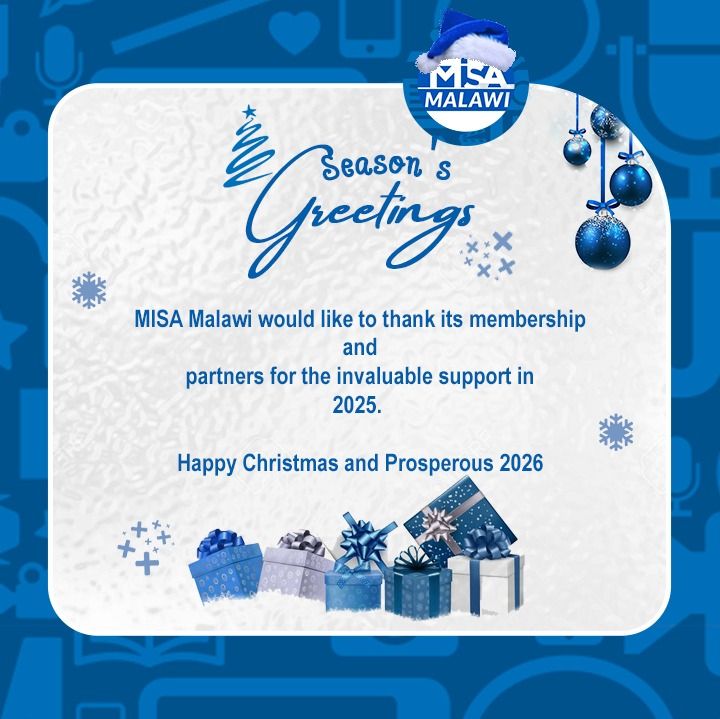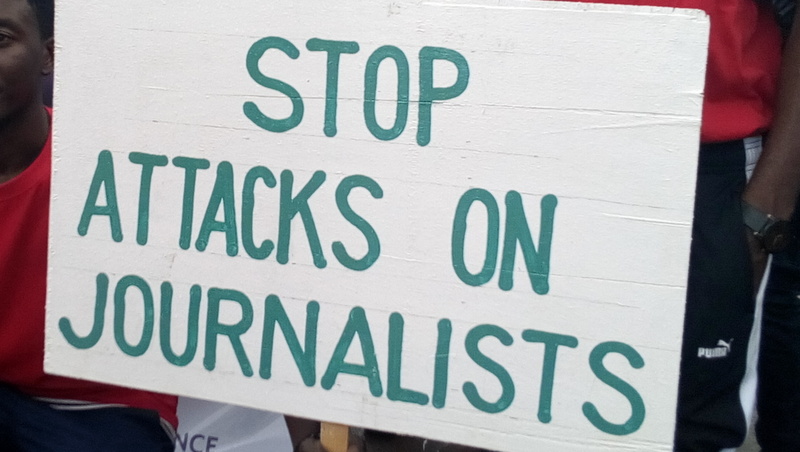Citizens who can access public information are well-informed and constructively express themselves on issues that affect them
Delivered at 2023 MISA Malawi Awards Gala Dinner, May 6, Crossroads Hotel, Lilongwe
Moni Nonse! Mwaswera bwanji?
I offer heartfelt greetings on behalf of the U.S. government and my personal compliments to our media fellowship – our brothers and sisters who work across all media platforms – as we celebrate World Press Freedom Day this week. The U.S. Embassy is proud to take part in this year’s gala and media awards organized by the Media Institute of Southern Africa (MISA) – Malawi Chapter not only to honor the best performing journalists and media outlets, but also to pause and reflect on the state of journalism in Malawi. As someone who began their career in journalism, this is a subject that is particularly important to me.
We believe that one of the most important ways to measure a country’s adherence to democratic values is to examine the freedom of its press. We applaud the persistent advocacy by MISA to ensure that freedom of the press is respected and that journalists in Malawi follow professional and ethical standards in their reporting. We value our continued partnership with the media through MISA which has allowed us to support journalists, media outlets, and media training institutions. Through this collaboration, the media in Malawi continue to benefit from our locally held workshops and our exchange programs. The International Visitor Leadership Program, one of our premier professional exchange programs, recently included two of Malawi’s best photojournalists: Thoko Chikondi and Jacob Nankhonya. They participated in a special initiative called “A Global Moment in Time” in which they contributed phenomenal photographs from Malawi for a book that has been published this year depicting the state of the world during COVID-19. We thank the organizers of tonight’s event for allowing us to unveil the book at this ceremony and to present it to our two distinguished photojournalists. Thoko and Jacob, please come forward.
Beyond exchanges, in the past year, we partnered with MISA to train journalists and Malawi Police Service officers in cooperative endeavors. Specifically, we funded MISA to conduct a series of trainings attended by 15 senior-ranked police officers and 12 journalists from a cross-section of outlets. We believe this will help to end arbitrary “invitations” of journalists to the Malawi Police Headquarters in Area 30 and help journalists better understand the chain of command in the police service. Relationships between the media and the MPS need not be adversarial, and we know that good relations between the two are both possible and important to achieve for the benefit of the people.
As noted in the theme for this year’s World Press Freedom Day, “Shaping a Future of Rights: Freedom of expression as a driver for all other human rights,” the importance of enabling free speech and free expression cannot be overemphasized. Former U.S Secretary of State Hillary Clinton once observed that, “When a free media is in jeopardy, all other human rights are also threatened.” A free media is the bedrock of any functioning and successful democracy. I know that radio is king in Malawi, and that because of high internet costs, radio continues to be the sole source of information for millions of Malawians. It is where many can express themselves and their concerns, whether it is about politics, governance, business, religion, culture, or crises, as we have seen during the Cyclone Freddy disaster. It is not uncommon to see families in villages gathered around a radio set listening to a talk show, especially one from their own community such as Nyathepa Community Radio in Nsanje or Tuntufye Community Radio in Karonga.
It is concerning, therefore, to see that radio space is gradually shrinking in Malawi as radio stations close due to the revocation of licenses. We urge continued dialogue among the various radio stations, MACRA, stakeholders such as MISA, and the Parliament to quickly find workable solutions that promote growth in the radio industry and allow radio stations to remain open. The media industry in Malawi needs to expand, not shrink. A growing media industry is good for diversity; it is good for democracy; it is good for the economy; and it is good for Malawi.
For citizens to express themselves effectively and for the media to remain a reliable and trusted conduit of people’s thoughts, ideas, and aspirations, there must be access to information. Citizens who can access public information are well-informed and constructively express themselves on issues that affect them. We were pleased that the Access to Information law was finally enacted in 2020, but it is concerning that the Malawi Human Rights Commission tasked to implement the law has not been adequately funded. If Malawi is serious about positively shaping the future of rights and protecting its people’s freedom of expression as enshrined in the Malawi Constitution, the ATI cannot be merely window dressing. It needs to be made to work for the benefit of Malawians.
Once again, let me commend MISA and your partners for the work you are doing to strengthen freedom of the press and media in Malawi. You stand by journalists when they are attacked for doing their jobs, you are the voice of radio stations on the brink of closure, and you defend freedom of expression online. Simply put, you have been there for the media in Malawi.
The U.S. Embassy values our partnership, and we are proud of our sponsorship of three categories in the awards tonight. This is the U.S Government’s way of demonstrating commitment to supporting freedom of expression and the existence of a free press in Malawi. We will continue to stand firm with those who want to see Malawi strengthen its democracy in which citizens freely express their views on pertinent public issues and where the fourth estate is trusted to hold governing institutions accountable. We encourage the exercise of free speech with responsibility.
Thank you for the opportunity to be here and to celebrate with you all tonight. Congratulations in advance to all the journalists and media outlets that will win awards, but in reality, you are all winners. Enjoy the night.
Usiku wa bwino! Zikomo kwambiri!
About MISA
The Media Institute of Southern Africa (MISA) was founded in 1992. Its work focuses on promoting, and advocating for, the unhindered enjoyment of freedom of expression, access to information and a free, independent, diverse and pluralistic media.









